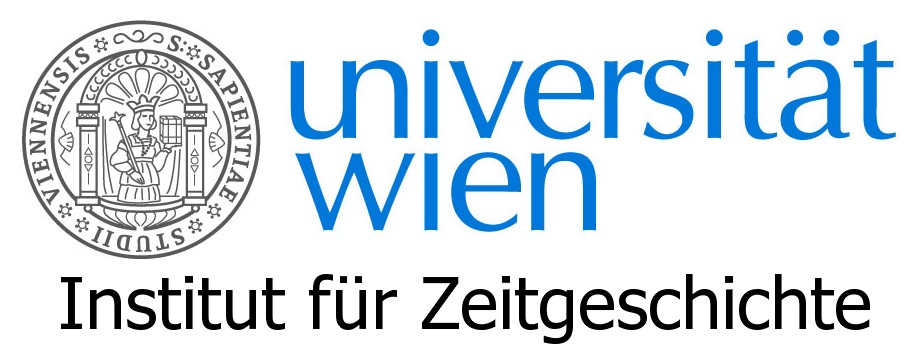VWI invites/goes to...
Cycle of VWI Fellows’ Colloquia
The VWI fellows present their intermediary research results in the context of colloquia which are announced to a small audience and are open to a public audience with an academic and topical interest. The lectures are complemented by a response or commentary by an expert in the given field and are discussed with the other fellows.
Due to the previous lack of an appropriate space, the colloquia were held at other Viennese research and cultural institutions with a topical or regional connection to the given subject. From this circumstance was born the “VWI goes to …” format.
With the move to a new institute building at Rabensteig 3, the spatial circumstances have changed, so that the VWI is now happily able to invite other research and cultural institutions. Therefore, the VWI is now conducting its colloquia both externally and within its own building, in the framework of continued co-operation with other institutions.
The new cycle of fellows’ colloquia “VWI invites/goes to …” is not only able to reach a broader circle of interested persons, but moreover integrates the VWI further into the Viennese scholarly establishment, perhaps even crossing borders into the greater regional research landscape.
| VWI invites/goes to... | |||
| Connor Sebestyen: German War Criminals – 1945-58. Their Oversight by the Allies, Their Prisons, Their Lives as Prisoners, And German Society | |||
Wednesday, 18. November 2020, 17:00 Please use this link to join the event (online only):
|
|||
https://us02web.zoom.us/j/87369601502?pwd=dDNWMk1rcFk3aTh6ZTBMUzg4cmRFUT09 VWI invites the Institute of Contemporary History at the University of Vienna
If historians want to understand postwar justice, how it was meted out, and how it was received by the German public, it is as important to understand the nature of the German war criminals’ incarceration as it is to understand their sentencing and trials. My research uses a fresh approach to tackle the question: why did so many ordinary Germans care so deeply about the fate of a few thousand imprisoned war criminals?I answer this question by beginning with the war criminals themselves and working my way out from there to reconstruct networks of support, layer by layer. This approach gives us a much fuller picture of who was supporting the war criminals, what their reasons were, and how they brought intolerable pressure to bear on the Allied occupation governments. This, in turn, adds richness and complexity to our current understanding of how the mass amnesties of the 1950s came about. Foto: German war criminals performing penal labour at the French prison, Wittlich (Ministère des Affaires Étrangères Archives, La Courneuve, Archives de L’Occupation Française en Allemagne et en Autriche, Affaires Judiciaires, Boîte 2487.) Commented by Kerstin von Lingen Connor Sebestyen is a doctoral candidate in History and Jewish Studies at the University of Toronto. His research interests lie at the intersection of military history, international relations, and the postwar social and judicial reckoning with the Holocaust. He has received fellowships from organisations such as Massey College, the Holocaust Education Foundation, and the Ontario, Canadian, and German governments. He has completed degrees at Trent University, Queen’s University, and the University of Oxford. Kerstin von Lingen is a professor at the Institute for Contemporary History at the University of Vienna, holding the Professorship of Genocide, Violence and Dictatorship. From 2013 to 2017, she led a research group at Heidelberg University focussing on war crimes trials in Asia. Her publications include two monographs in English and three edited volumes on war crimes trials. In German, she published the multi-authored volumes Kriegserfahrung und nationale Identität in Europa, Paderborn 2009, and co-edited Zwangsarbeit als Kriegsressource in Europa und Asien, Paderborn 2014 with Klaus Gestwa. Her research focusses on the aftermath of violence, including trials and compensation, apology and memory politics, but also migration and resettlement schemes. Click here to download the invitation as a PDF file. In cooperation with |
|||







 The presentation will examine the imprisonment of German war criminals after the Second World War. Over a period of 13 years, the western Allied war crimes programs changed from severe sentencing and ‘vengeance,’ to political expediency and farce. How did this fundamental transformation take place? What led all three of the western Allied powers to give up on punishing these perpetrators of mass murder and atrocity? My research shows that the existing answers to these questions are overly fixed on factors relating to the emergence of the Cold War. It overlooks the important interaction between social, political, and domestic causes on the one hand, and diplomacy, international relations, and strategy on the other. Only by combining these two approaches can we arrive at a satisfying answer as to why and how the war crimes programs collapsed.
The presentation will examine the imprisonment of German war criminals after the Second World War. Over a period of 13 years, the western Allied war crimes programs changed from severe sentencing and ‘vengeance,’ to political expediency and farce. How did this fundamental transformation take place? What led all three of the western Allied powers to give up on punishing these perpetrators of mass murder and atrocity? My research shows that the existing answers to these questions are overly fixed on factors relating to the emergence of the Cold War. It overlooks the important interaction between social, political, and domestic causes on the one hand, and diplomacy, international relations, and strategy on the other. Only by combining these two approaches can we arrive at a satisfying answer as to why and how the war crimes programs collapsed.
